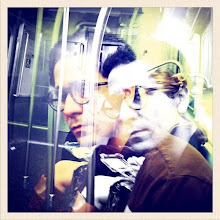To preclude an overly tedious account of mid 17c political trends in England, I'll presume that the reader trusts me enough to accept that it was a compressed period of violent transitions. After three civil wars (1642-46, 1648-49 and 1649-51), Charles I had been beheaded, the Rump Parliament fractured and failed, and Cromwell named Lord Protector of the Commonwealth (1653-58). Even before the wars, there was great suspicion of Charles' closeness to Catholic agents and powers, which, before Charles, had been vigorously suppressed in England by James I (1603-25).
To these convulsions, Crashaw arrived (b.1613, d.49); a period of intense politicization of the corpus of English man and woman. Within a very short period, individuals had experienced intense transformations in their legal and political status. I suspect that this instability resulted in the denaturalizations of language common to poets of this time. The Metaphysicals, as they're known, had to impart that peculiar, unbodily affect because physicality had become a legal liability.
With Herbert, for example, the activities of the mind as exhibited in his poetry are reckoned as an emanation--or struggle for emanation--of God within. But Herbert, poet, must still be effecting the poetry, so that the sense of material fixity in Herbert is continuously being undermined. Herbert's evacuation of his own agency removes the assertions of his poetry from a liable, physical person but simultaneously insists that the material of the poem should stand as a representation of the poet's, Herbert's, struggle to create.
With Crashaw, who expatriated to France during the civil wars to pursue the Catholic inclinations he had long been fostering, the metaphysicality is tended to with a distinct sensuality. Rather than evacuate, Crashaw saturates his lines with often conflicted physicalization and imagery. Describing the Christ's foot receiving Mary Magdalene's kisses:
This foot hath got a Mouth and lippes,
To pay the sweet summe of thy kisses:
To pay thy Teares, an Eye that weeps
In stead of Teares such Gems as this is.
Are they mouths? Or are they eyes? The wounds of the Christ? Is it possible to reconcile the presence of all possibilities without considering the passage grotesque? In this regard, Crashaw's poetry is fundamentally without a true body. Objects, organs and extremities liquify from sensible to insensible to strangely sensible.
Where then is the body? It is sometimes forgotten that the Christian religion began as a deeply Earthy movement. Compared to Islam, which has traditionally shunned representation of man or the world and is more aligned with a certain algebraic understanding of beauty and spirituality, Christianity, especially the Catholic version, is extremely sensuous, anthropomorphic and organic. An excellent example of this could be glimpsed in a study of Toledo in the 13th century, when the great Arabic preservation of Greek texts was being translated into Latin, while the tendencies of the Baroque are beginning to surface in the construction of some Catholic cathedrals (ie. Arabic Muslims had kept account of ideas while Christians were erecting massive, voluptuous temples of Christ--Toledo at the time was famed for its religious tolerance and had large communities of Jews, Muslims and Christians living peacefully together).
Crashaw's body does not exist--it could not exist, for reasons detailed earlier. But his idiom required he understand its non-existence in material terms. He was trying to speak of unearthliness with a strict language of the Earth. For this reason, his grotesque is more appealing than Gongora's, which often feels more conflicting than conflicted:
Pasos de un peregrino son, errante,
Cuantos me dictó versos dulce Musa
En soledad confusa,
Perdidos unos, otros inspirados...
Era del año la estación florida
En que el mentido robador de Europa
-Media luna las armas de su frente,
Y el Sol todos los rayos de su pelo-,
Luciente honor del cielo,
En campos de zafiro pace estrellas,
Cuando el que ministrar podía la copa
A Júpiter mejor que el garzón de Ida,
-Náufrago y desdeñado, sobre ausente-,
Lagrimosas de amor dulces querellas
Da al mar; que condolido,
Fue a las ondas, fue al viento
El mísero gemido,
Segundo de Arïón dulce instrumento...
Crashaw's denaturalizations--with their wounds that eyes and are mouths--seem to me more blindly natural.
Saturday, February 7, 2009
Subscribe to:
Post Comments (Atom)




No comments:
Post a Comment